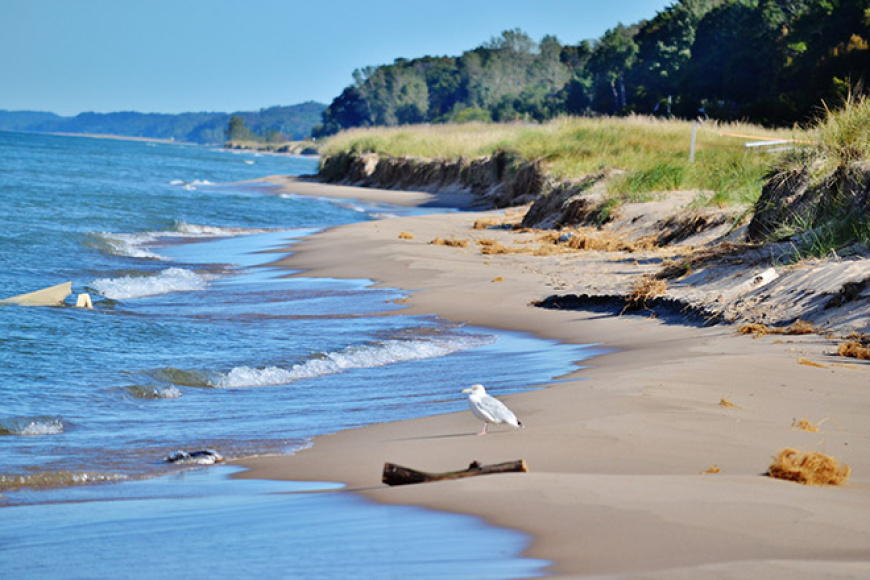
 back to all news
back to all news
The future of Great Lakes stewardship

The U.S. Environmental Protection Agency is drafting an updated Great Lakes restoration plan, which presents an opportunity to create a new set of Great Lakes management principles based on boundary-spanning, justice and systems thinking, according to a new commentary from University of Michigan faculty, including those from the School for Environment and Sustainability (SEAS).
Great Lakes policies and institutions that were developed 100 years ago are ill-equipped to handle the 21st-century challenges confronting the Great Lakes region today, the authors write. These challenges include climate variability and change, water scarcity and diversions, water inaccessibility and unaffordability, invasive species, algal blooms, and environmental injustice.
The commentary, “Leadership for the next generation of Great Lakes stewardship,” was published online July 8 in the Journal of Great Lakes Research.
“There is an unprecedented opportunity right now to shape the future of the Great Lakes and our region for the next generation,” said Mike Shriberg (MS ’00, PhD ’02), visiting professor of practice and engagement at SEAS and one of the commentary authors.
“A new federal plan for the Great Lakes is being constructed and will dictate how billions in restoration funds will be spent and what the priorities for the region will be. Collaboration across U-M produced new guiding principles for what future Great Lakes leadership should look like, including concepts such as managing for resiliency, centering justice, and building from community priorities. This new approach to Great Lakes stewardship will also shape how SEAS and the University of Michigan educate the next generation of leaders.”
In addition to Shriberg, the other authors of the commentary are Jon W. Allan, Gregory J. Dick, Drew Gronewold, Sara Hughes, Jonathan Overpeck and Kyle Whyte from SEAS, as well as David Porter (English Language and Literature), Richard Norton (Taubman College of Architecture and Urban Planning), Jennifer Read (Graham Sustainability Institute), Oday Salim (Michigan Law), and Allison Steiner (Climate and Space Sciences and Engineering).
Read the commentary: Leadership for the next generation of Great Lakes stewardship

